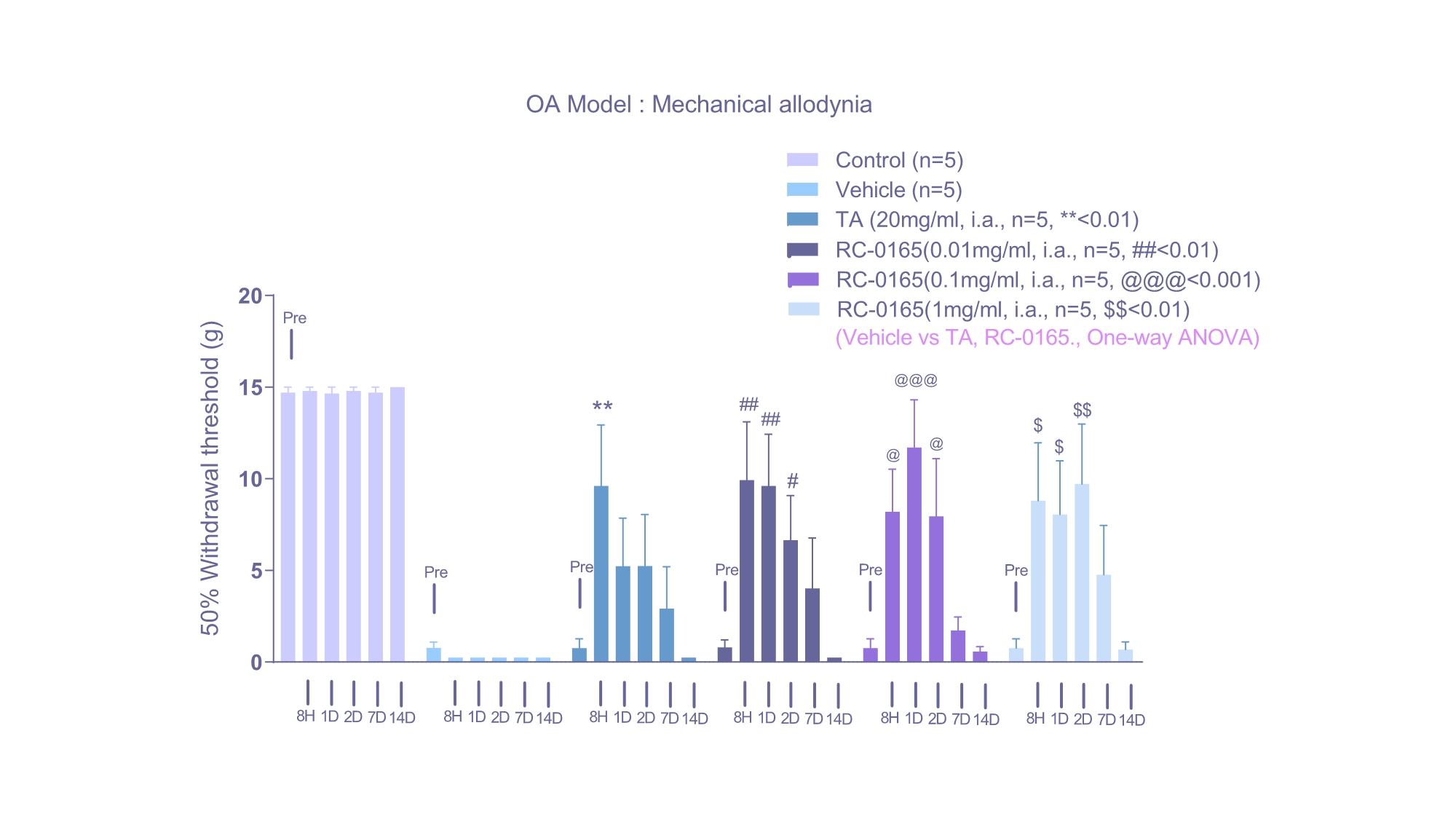Session Information
Date: Monday, November 13, 2023
Title: (0859–0885) Osteoarthritis & Joint Biology – Basic Science Poster
Session Type: Poster Session B
Session Time: 9:00AM-11:00AM
Background/Purpose: Osteoarthritis (OA), the most common form of arthritis, arises from the deterioration of cartilage within joint bones, resulting in pain and functional disability with limited range of motion. Despite many studies that aimed to find a new target to treat OA pain or regenerate cartilage, OA remains an area of high unmet need due to the lack of effective analgesics and disease-modifying drugs.
The Transient Receptor Potential Vanilloid 1 (TRPV1) cation channel is a member of the Transient Receptor Potential (TRP) channels that acts as a molecular detector of noxious signals in primary sensory neurons. Many companies have attempted to develop TRPV1 antagonists to treat OA pain, however due to TRPV1’s role in thermoregulation, most have been halted from side effects such as hyperthermia.
RC-0165 is a potent and selective peptide TRPV1 antagonist that potently blocks capsaicin activation of the TRPV1 channel with negligible influence on pH or heat activation modes. We found that when injected intraarticularly, RC-0165 attenuates neuropathic and OA pain without causing any effect on body temperature in both primates (marmosets) and non-primates (rat&mouse).
In this study, calcium imaging was used to assess the effects of RC-0165 on HEK293T cells expressing TRPV1. We also evaluated the efficacy of RC-0165 through pain-related behavioral test using a Monosodium iodoacetate (MIA)-induced OA rat model.
Methods: In vitro, the level of calcium influx after TRPV1 antagonism by RC-0165 in TRPV1-expressing human embryonic kidney (HEK) 293T cells were measured via calcium imaging experiments. In vivo, pain-related behavioral effects were compared to RC-0165 and triamcinolone acetonide (TA)as positive control in a MIA-induced OA rat model, which was assessed using Von Frey, Hargreaves, open field, and rotarod tests.
Results: We confirmed that RC-0165, a novel peptide TRPV1 antagonist, diminishes calcium influx in cells related to pain signals through TRPV1 inhibition. Analgesic efficacy was also investigated in-vivo studies by injecting RC-0165 intraarticularly in MIA-induced OA rat model. In the Von Frey test, which measures the pain in response to mechanical stimulation, the RC-0165(0.01, 0.1 and 1mg/ml) group showed a significant increase in pain threshold compared to TA group and its efficient pain-reducing effect lasted for 3 days. In the open field and rotarod tests, the RC-0165 group showed meaningful increase in exercise capacity and promising results of improvement in OA pain.
Conclusion: The results of our study suggest that RC-0165 may be a promising approach to significantly reduce OA pain compared to TA by suppressing pain signals mediated by TRPV1
To cite this abstract in AMA style:
kim D, park J, kim M, kim Y. The Analgesic Effect of RC-0165, a TRPV1 Antagonist, for Osteoarthritis Pain [abstract]. Arthritis Rheumatol. 2023; 75 (suppl 9). https://acrabstracts.org/abstract/the-analgesic-effect-of-rc-0165-a-trpv1-antagonist-for-osteoarthritis-pain/. Accessed .« Back to ACR Convergence 2023
ACR Meeting Abstracts - https://acrabstracts.org/abstract/the-analgesic-effect-of-rc-0165-a-trpv1-antagonist-for-osteoarthritis-pain/

